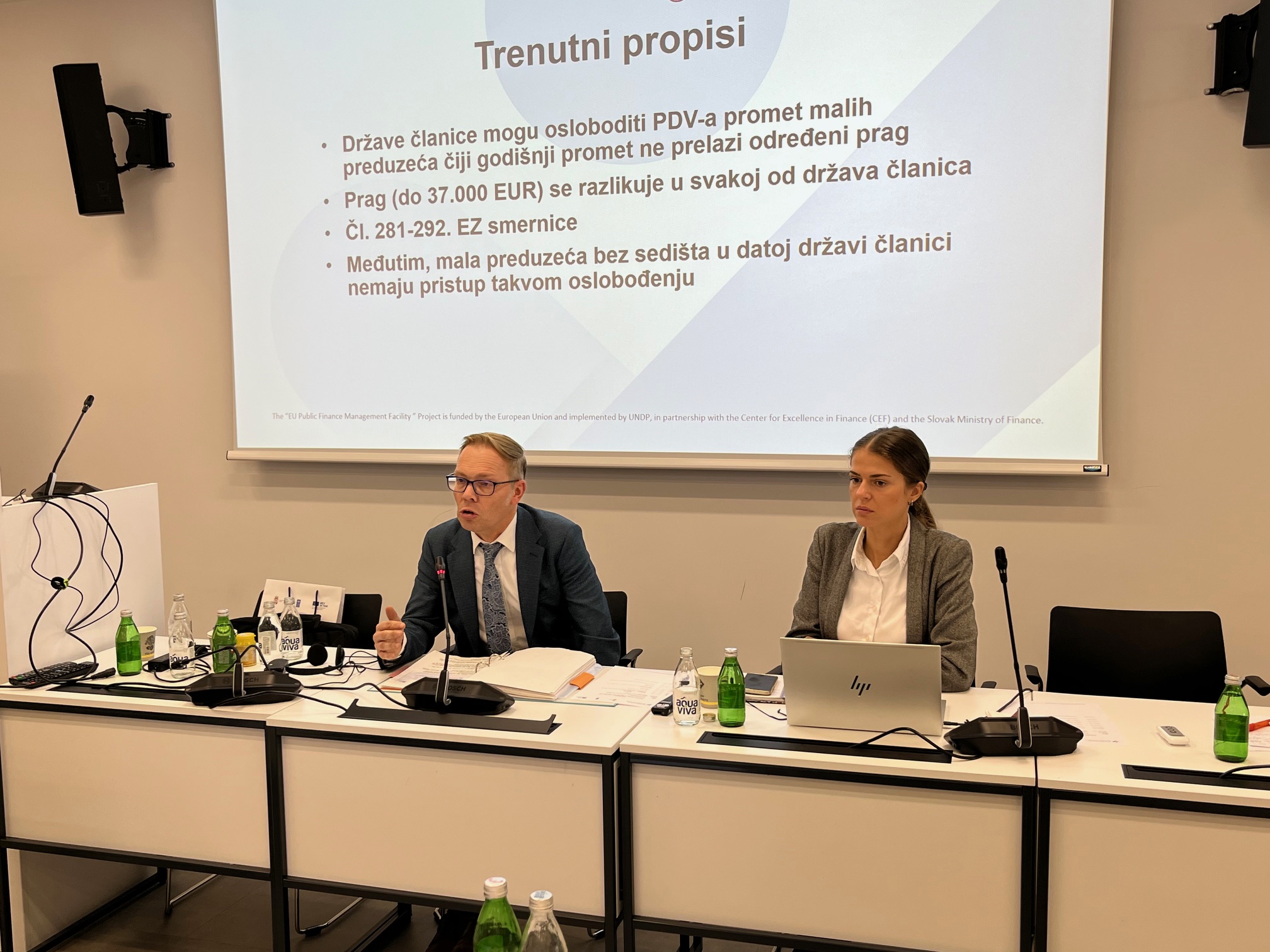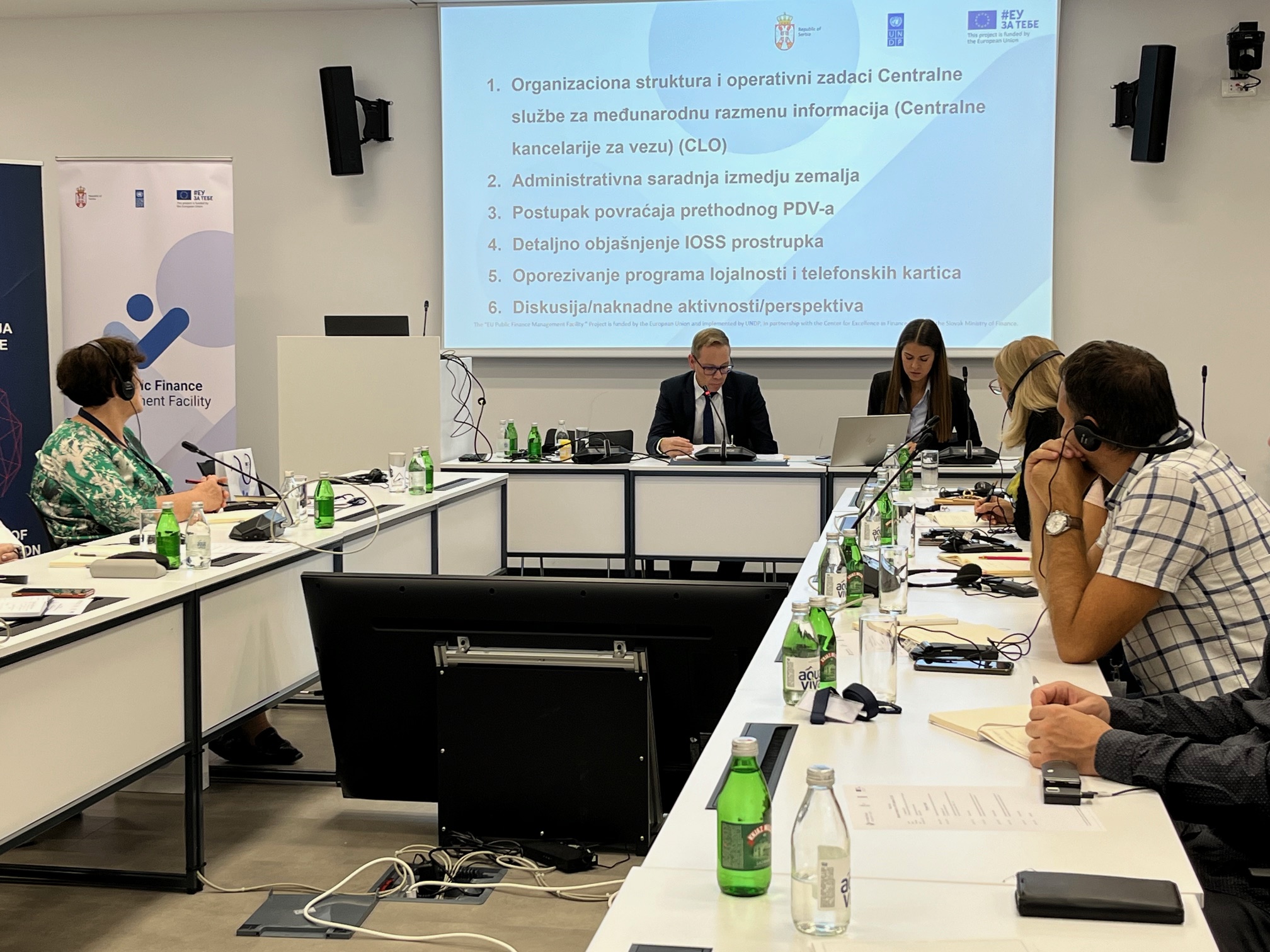Belgrade, September 12 – A two-day workshop on trends in the European Union (EU) VAT system, attended by around 20 civil servants, was held on September 11 and 12 at the Central Tax Administration in Belgrade. The workshop aimed to familiarize participants with the latest developments in the EU VAT system, providing valuable insights into best practices from EU countries and highlighting the potential benefits of implementing the VAT Information Exchange System (VIES) as Serbia moves towards EU accession.

The workshop was led by Markus Drost, an international expert on EU VAT trends.
“Serbia already has established contacts with EU member countries, and once it enters the European market, borders will be abolished, significantly increasing economic exchange. The free market is a key component of the European VAT system, and Serbia’s entry into that market will be a significant boost to both the European and Serbian economies. It is therefore essential for the country to prepare thoroughly, and one crucial step is training officials who deal with customs and tax matters,” said Drost.
On the first day, participants focused on the organizational structure and operational tasks of the Central Liaison Office (CLO), as well as the framework for administrative cooperation among EU countries. This included discussions on automatic and specific requests for information as part of the operational mechanisms of the VIES system. The second day covered VAT refund procedures in the EU, differences in VAT collection for cross-border sales, and VAT issues related to commonly used business tools.

“The topic of this workshop is highly relevant for the Tax Administration, as we already have administrative cooperation mechanisms in place. Last year, the Republic of Serbia received a high rating for its standards of information exchange, following the Global Forum on Transparency and Exchange of Information for Tax Purposes, organized by the OECD. These standards are aligned with EU regulations. This workshop has been valuable because it offers an overview of how these standards are applied in a developed economy like Germany. It also helps us assess our current position and what steps we need to take going forward,” said Milka Lukač, Head of the Department for International Cooperation and Exchange of Information at the Tax Administration.
Aleksandra Vukićević, Head of Control in the Tax Control Department of the Center for Large Taxpayers, is attending her third workshop under the "EU Public Finance Management Facility" project.
“I am very pleased with the lectures and discussions at these workshops. It’s crucial that we understand what awaits us when our country enters the EU, and how we can already start taking proactive steps. As Mr. Drost mentioned, when we join the EU, the entire system is activated, and such a system cannot be built overnight; it requires careful preparation,” said Vukićević.
This is the fourth in a series of workshops designed to cover the most important aspects of the EU VAT system. The workshops aim to help Serbian tax officials understand the complexity of the system and prepare for the implementation of VIES in Serbia, ensuring compliance with EU tax regulations.
This workshop is part of the the project "EU Public Finance Management Facility " which is financed by the European Union and implemented by UNDP, in partnership with the Center for Excellence in Finance (CEF) and the Ministry of Finance of Slovakia.